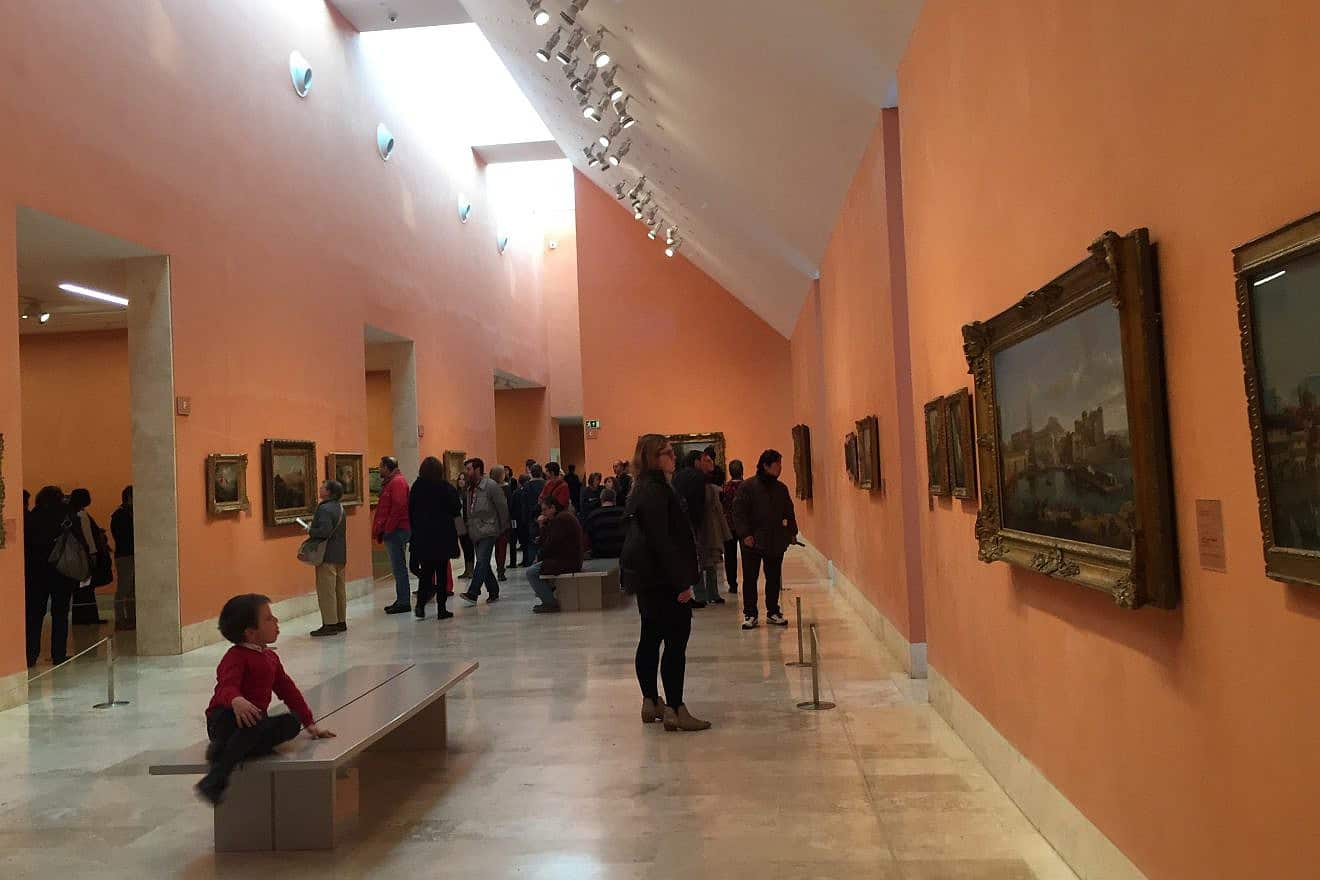|
Getting your Trinity Audio player ready...
|
Relatives of Lilly Cassirer have fought for some 20 years in federal court for the return of the Jewish Impressionist painter Jacob Abraham Camille Pissarro’s 1897 canvas Rue Saint-Honoré in the Afternoon: Effect of Rain, housed in the Thyssen-Bornemisza National Museum in Madrid.
Cassirer surrendered the picture, which is worth between $40 million and $50 million today, according to some estimates, in 1939 in exchange for safe passage out of Nazi Germany. The museum’s namesake bought it in 1976 from a New York collector. The museum states that neither the baron who bought the work nor the Spanish state that acquired the baron’s collection in 1993 was aware that it was looted.
On March 10, the Supreme Court vacated a U.S. Court of Appeals for the Ninth Circuit’s ruling in favor of the Spanish museum and ordered the lower court to reconsider. The high court instructed the appeals court to take into account recent California state law provisions that make it easier for victims of persecution to recover property.
“I am very grateful to the Supreme Court and the state of California for insisting on applying principles of right and wrong,” stated David Cassirer, Lilly Cassirer’s great-grandson.
He noted that his late father, Holocaust survivor Claude Cassirer, became a U.S. citizen in 1947 and “cherished the values of this country.”
“He was very disappointed that Spain refused to honor its international obligations to return the Pissarro masterpiece that the Nazis looted from his grandmother,” David Cassirer said.
Claude Cassirer and his wife, Beverly, had initiated federal proceedings seeking the artwork’s return, citing a law that strips foreign countries of immunity in U.S. courts when property is taken in violation of international law.
A federal judge in Los Angeles and the San Francisco-based Ninth Circuit previously acknowledged that the Nazis had acquired the artwork improperly but ruled that the museum obtained the painting lawfully under Spanish law, which deems that an owner acquires good title to a possession, even if it was stolen, if it holds it for a period of years. California law held that a good title cannot be passed by thievery.
The new California statute, which passed last year and was designed to address the Cassirer family’s case, persuaded the U.S. Supreme Court this month to remand the case back to the Ninth Circuit.
That law requires courts to apply California law to any claims, including those already pending in the legal system, brought by a California resident involving the theft of art or other personal property during the Holocaust or other political persecutions.
“We are grateful the Supreme Court has vacated the Ninth Circuit decision and remanded the Cassirers’ case for application of California law requiring the return of looted artworks to their rightful owners,” stated David Boies and Sam Dubbin, co-counsel for the Cassirer family.
“There has never been a dispute that the Cassirer family was the rightful owner. With the applicable law now clearly established, we look forward to finally obtaining justice for the Cassirer family after 20 years of litigation,” they added. “We hope Spain and its museum will now do the right thing and return the Nazi looted art they are holding without further delay.”
The Cassirer lawyers claim that the California law should not have been required, given decades of U.S. statutes, treaties and other international agreements that call for artworks stolen in war to be restituted to the rightful owners or their heirs. Spain is a signatory to some of those agreements.

‘Urgent need for fair and just solutions’
David Jiménez, a Spanish journalist and former editor in chief of the Spanish daily El Mundo, penned a Washington Post op-ed in the days before the Supreme Court’s decision, calling Spain’s fight to keep the painting “shameful.”
JNS sought comment from the U.S. State Department about whether the Office of the Special Envoy for Holocaust Issues had been involved in the matter.
Leaked WikiLeaks cables indicated that Hillary Clinton, then the U.S. secretary of state, may have offered U.S. assistance to Spain to help Madrid recover the so-called Black Swan treasure discovered by the Odyssey Marine Exploration in exchange for Spain returning the Pissarro painting.
The World Jewish Restitution Organization, which led the development of best practices for the Washington Conference Principles on Nazi-Confiscated Art with the State Department, told JNS that it could not comment on specifics of individual cases.
The organization “is deeply supportive of efforts to return artworks sold under duress or wrongfully taken during the Holocaust,” Gideon Taylor, the organization’s president, told JNS.
He said the Cassirer case “underscores the urgent need for fair and just solutions,” including a Spanish endorsement of those 2024 best practices.
Such a move, Taylor added, would demonstrate that Spain has “a stronger commitment to resolving Holocaust-era restitution claims, including this one.”




